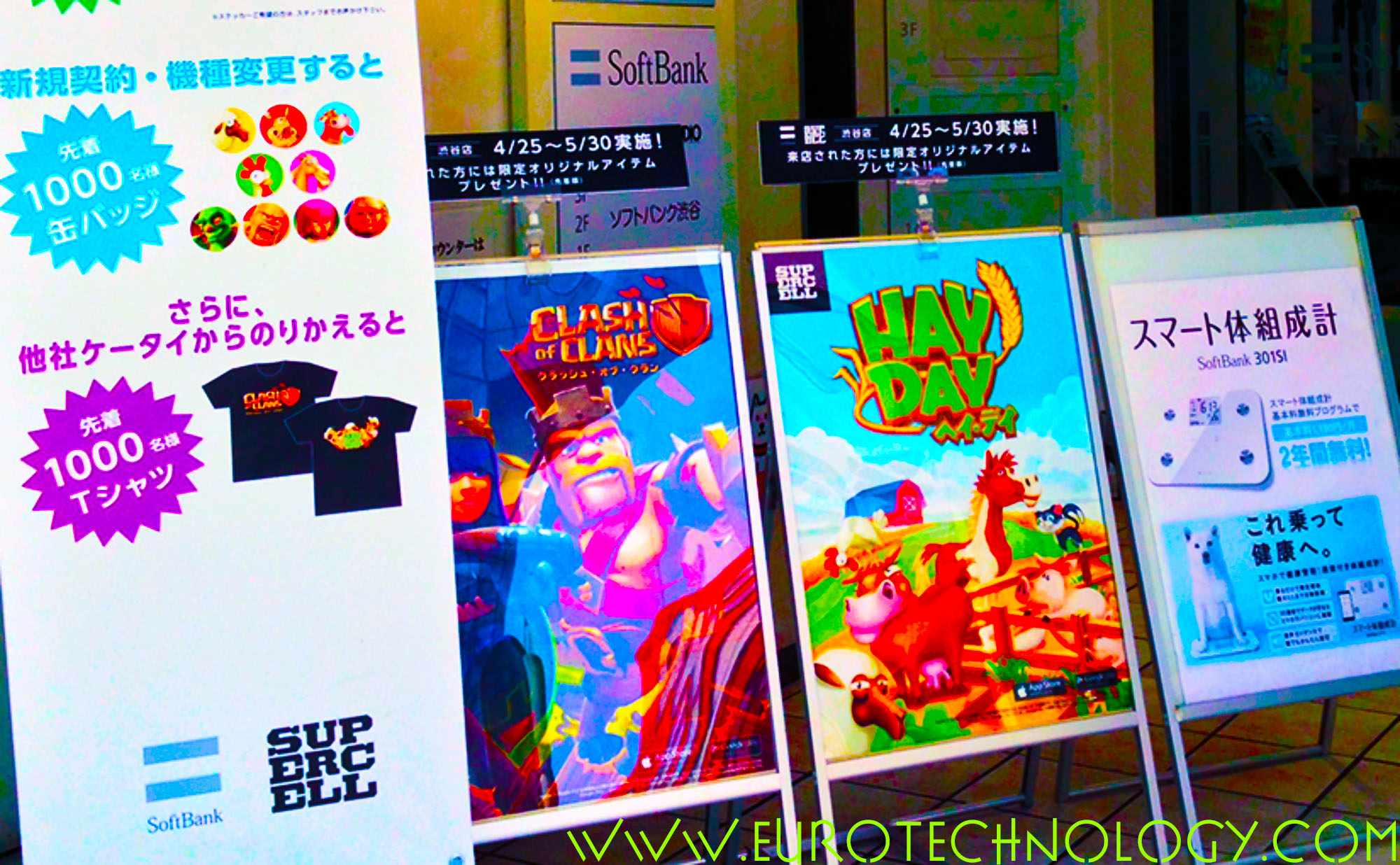Supercell valued at approx. US$ 3 billion
Supercell investment leverages paradigm shift, time shift and market disconnects
Smartphones and the “freemium” business models are bringing a dual paradigm shift to games and create a new truly global market. To take advantage of this global paradigm shift, its necessary to overcome the cultural disconnects between markets. SoftBank and GungHo‘s investment in the Finnish smartphone/tablet game maker Supercell, announced on Oct. 15, will help to overcome the disconnect between Japan’s and other game markets for both Supercell and GungHo.
The disconnect between Japan and other countries is often surprising – when BusinessWeek in 2006 commented on rumors that SoftBank might introduce an Apple “iPod-Phone” to Japan, BusinessWeek remarked that “Apple would normally never talk to a small-fry such as SoftBank” …. at that time SoftBank’s annual revenues were about twice Apple’s, and BusinessWeek printed my correction pointing out that SoftBank even at that time was anything but a “small fry”.
One of SoftBank‘s aspects is it’s “time-shift” investment model, another is SoftBank‘s 30/300 year vision – both are important factors to understand the Supercell investment.

This Figure contrasts the market caps of new mobile and smartphone centric game companies (GungHo, Supercell, DeNA and GREE) with traditional console, video game and arcade game companies.
SoftBank announced that because of the majority investment, Supercell will become a subsidiary of SoftBank, and GungHo will account for Supercell’s profit/loss under the equity method.

GungHo and Supercell both are top-ranking mobile game companies: GungHo inside Japan with “Puzzle and Dragons”, and Supercell outside Japan with “Hay Day” and “Clash of Clans”. Expect both to leverage each other’s resources.
Both GungHo and Supercell show explosive growth:
GungHo’s operating profits increased 4050% (x 40) for Jan-June 2013 compared to the same period one year earlier.
Supercell’s revenues (mainly in-game purchases) jumped 500x from EURO 151,000 in 2011 to EURO 78 million in 2012.
Culture can be an issue between Japan and other countries, however, SoftBank has invested in more than 1000 comparable companies, and many of SoftBank’s investments have been outstandingly successful including Alibaba and Yahoo.
However, investment and management support by SoftBank does not automatically guarantee success in Japan – despite SoftBank’s investment and support, Zynga closed operations in Japan earlier this year. Success in Japan will remain Supercell’s responsibility, despite SoftBank’s and GungHo’s help and investment – as Zynga can tell.
Copyright (c) 2013-2015 Eurotechnology Japan KK All Rights Reserved

Leave a Reply